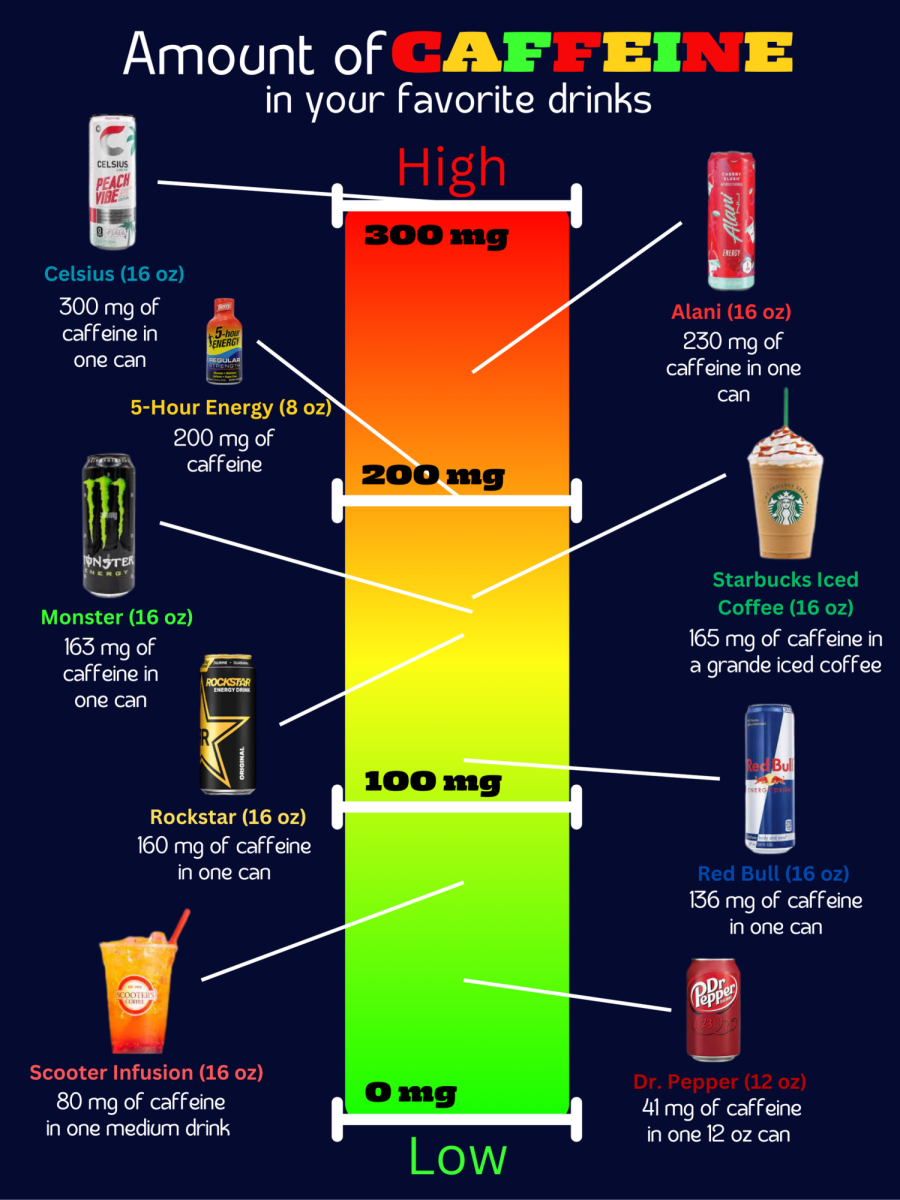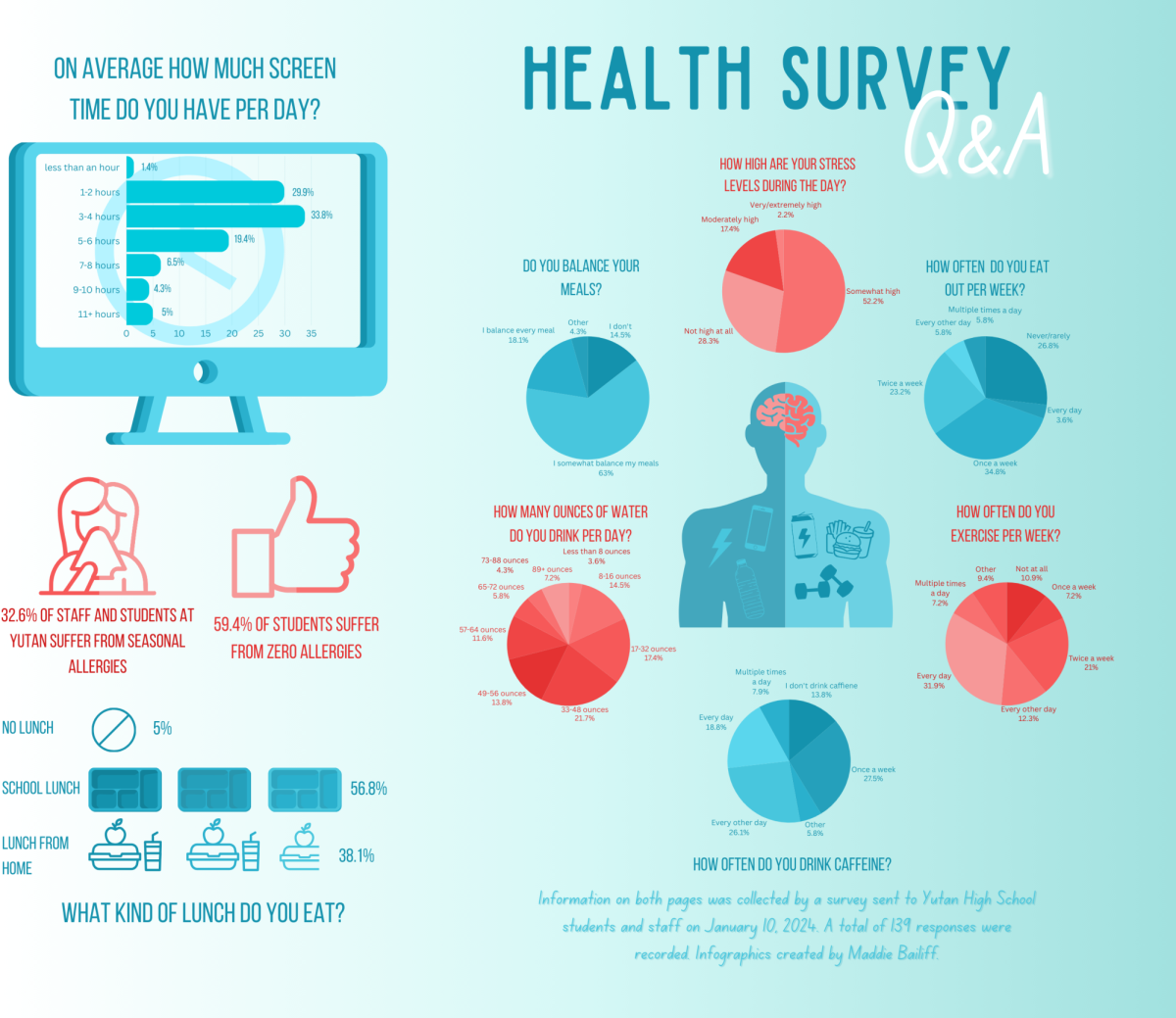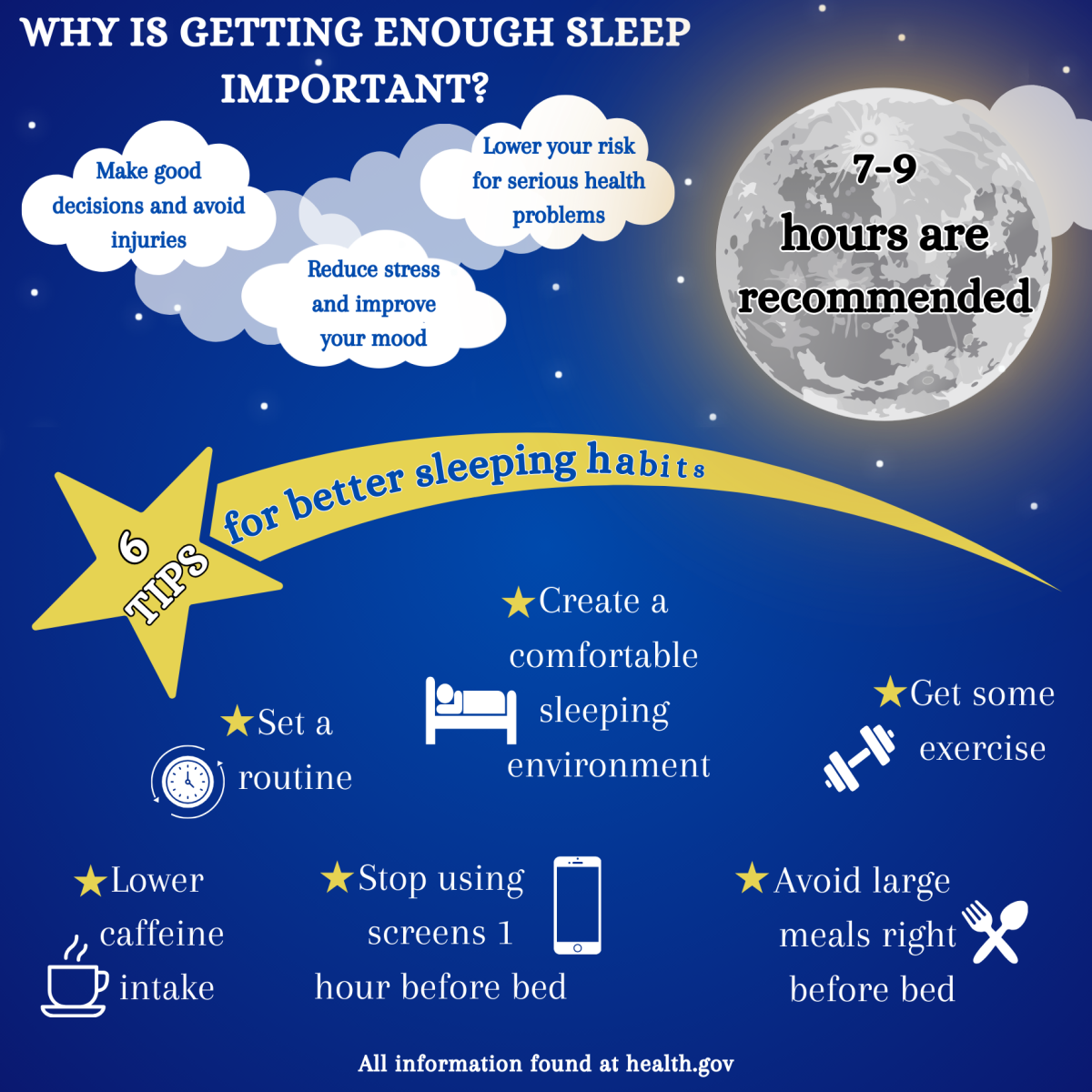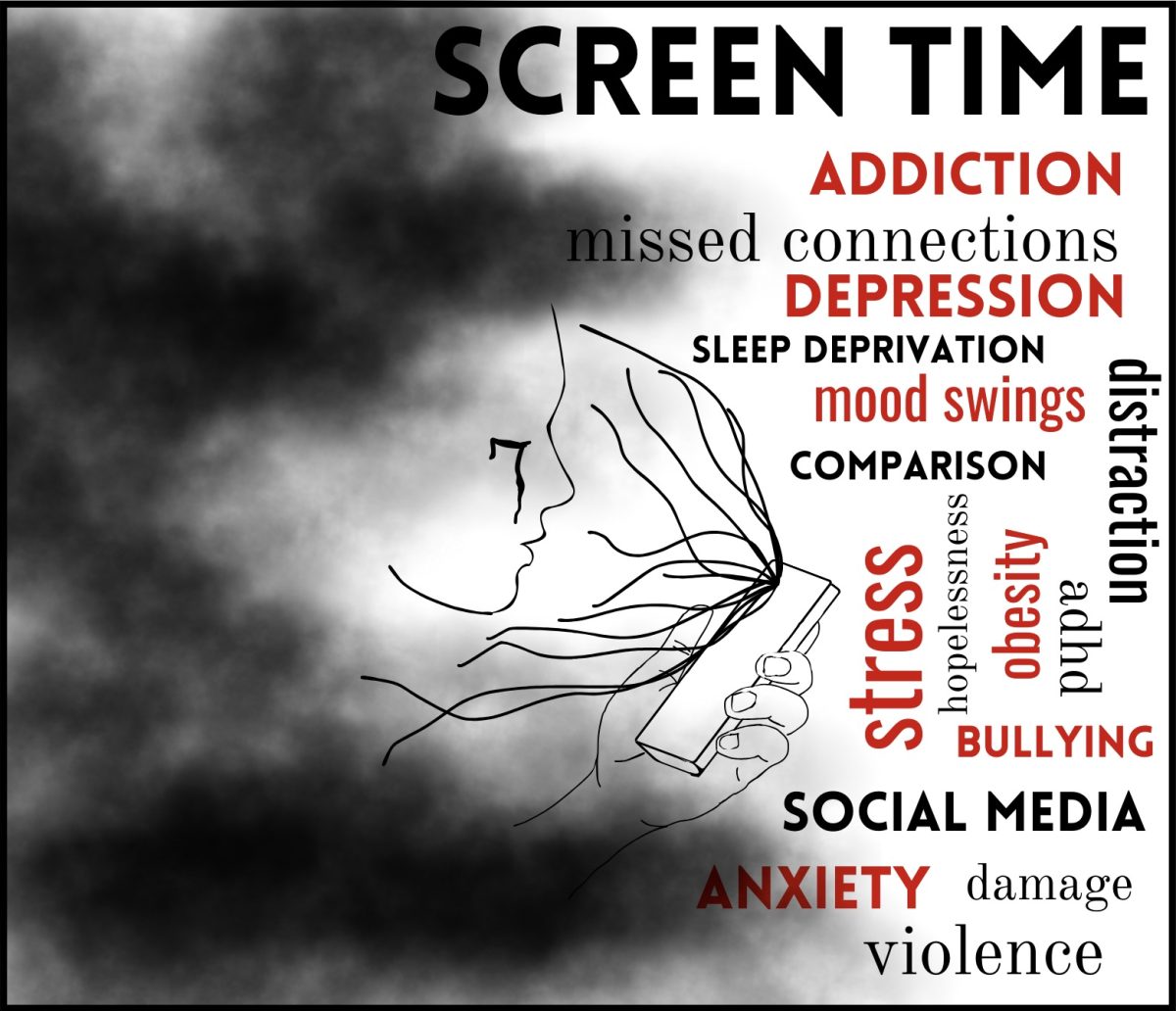Between classes, sports, homework, jobs, and family life, high school students often find themselves to fall short on sleep. When high school students don’t get enough sleep but need to power through the day, what do they do? They consume caffiene. According to a recent survey of Yutan students, about one third of students consume caffeine, usually in the form of coffee, pop, or energy drinks every single day. While drinking energy drinks can help students to have a more alert mind and elevated mood, there are many negative side effects that can come from drinking energy drinks that students need to be aware of.
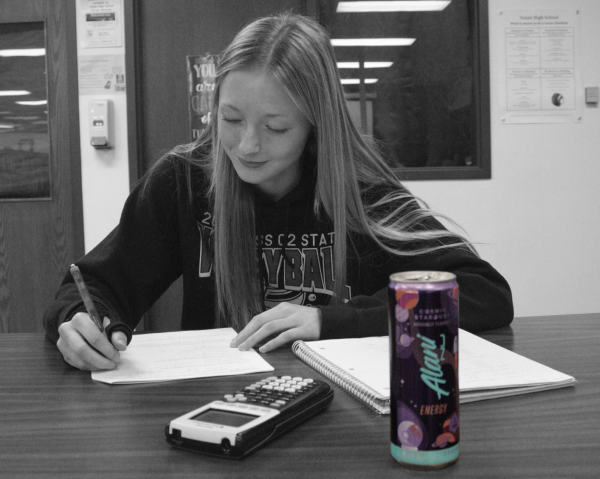
According to the National Center for Complementary and Integrative Health, one singular energy drink can contain up to 62 grams of sugar, which far exceeds the maximum amount of added sugars recommended for an entire day. To a consumer, especially high school students, there are so many negative effects that come with exceeding the normal sugar intake in a day. Some of these effects include an increased risk of obesity and type 2 diabetes, which come directly from the amount of sugar content in a drink. Also, excessively drinking energy drinks can cause people, especially high school students, to be disrupted in their normal sleeping patterns and to also potentially make bad choices.
One negative effect, according to a Yutan student who drinks Alani daily, is how energy drinks can cause them to not be able to focus as much, as caffeine can decrease mental concentration.
“Drinking caffeine is negative because sometimes it gives me too much energy to where I go off topic and get distracted,” said a Yutan junior.
One factor that leads teenagers to drink so much of these energy drinks is the amount of advertising that is made specifically for young people. About two-thirds of energy drink consumers are people aged 13 to 25 years old, according to the National Center for Complementary and Integrative Health, as companies target this age group with their advertisements.
The problem with so much advertising towards teenagers is the fact that they aren’t made aware of the long list of negatives that can come from energy drinks, as only the benefits are shown. Some of these negative effects even specifically target teens, like a change in sleeping patterns and negative decision making.
After interviewing many high school students, many of these students weren’t aware of negative effects that come from drinking lots of caffeinated drinks.
“Maybe it hurts your heart a little bit, I guess,” said another Yutan junior.
Another student agrees that there may be some negative effects, as they’ve seen other classmates be overly energetic from them.
“When some people have an energy drink, they’re like off the charts,” said a third Yutan junior. “I’m very cautious about how much I drink. I don’t drink more than one a day.”
While many students do drink energy drinks, there are some students who make a personal choice to not drink them. According to one student, their decision to not drink these drinks came from influence by their parents as well.
“My parents don’t really encourage us to drink a lot of caffeine. I don’t need coffee or any energy drinks throughout the day because I’m still young, and it might affect me personally,” said a freshman.
While drinking energy drinks in moderation can be helpful for your mind at times, drinking energy drinks every day or even more than once a day may cause potential health problems in the future, which more high schoolers should be made aware about before making the choice to drink them. While many high school students will not completely stop drinking energy drinks, it can be important to research healthier versions of energy drinks, such as drinks that contain less sugar in them.
By making students aware of the harmful effects that consuming energy drinks can have on them, this can make them less likely to drink energy drinks or at least cut back on drinking them more than once a day. While a strong mind and elevated mood can be beneficial in the moment, the negative impact of energy drinks far outweigh the short term effects.
